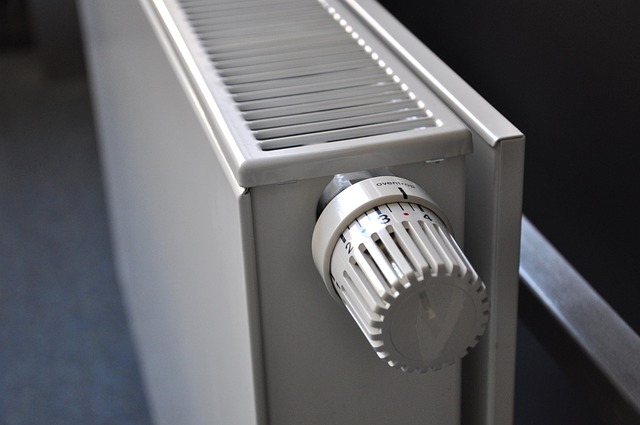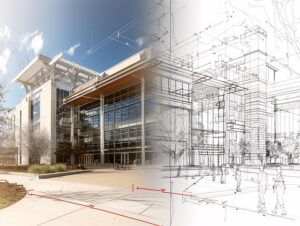Commercial electric boilers operate within a strict regulatory landscape aimed at minimizing environmental impact and promoting sustainability. These boilers, known for their energy efficiency, compact size, and modular design, offer significant advantages in reducing operational costs and carbon emissions. Recent innovations have addressed previous efficiency gaps with gas counterparts, while modular systems cater to diverse heating needs. Many organizations have adopted commercial electric boilers as a sustainable alternative, achieving substantial energy savings and environmental benefits.
In today’s eco-conscious world, navigating stringent environmental codes is paramount for commercial spaces. This is particularly evident in the heating sector, where commercial electric boilers are emerging as a sustainable solution. This article delves into the intricacies of these high-efficiency systems, exploring their advantages and key features that meet stringent emission standards. We’ll guide you through the process, from understanding regulatory requirements to showcasing successful case studies, all while highlighting the benefits of commercial electric boilers in shaping a greener future.
- Understanding Strict Environmental Regulations for Commercial Boilers
- Advantages of Electric Boilers in Commercial Settings
- Key Features of High-Efficiency Electric Commercial Boilers
- Navigating Emissions Standards and Energy Efficiency Requirements
- Case Studies: Successful Implementation of Green Electric Boiler Systems
Understanding Strict Environmental Regulations for Commercial Boilers

Commercial electric boilers operate within a stringent regulatory environment aimed at minimizing environmental impact and promoting sustainable practices. These regulations, governing everything from emissions to energy efficiency, are driven by the ever-growing need to protect the planet and mitigate climate change. For businesses, understanding these codes is crucial to ensure compliance and avoid costly penalties.
The transition towards cleaner, greener technologies, such as electric heating systems, including high-capacity electric boilers and modular boiler systems, is a key aspect of meeting these environmental standards. Commercial boiler technology has advanced significantly, with energy-efficient models offering superior performance while reducing carbon footprints. The adoption of industrial electric heating solutions, particularly in institutional settings requiring substantial heating, contributes to a more sustainable future.
Advantages of Electric Boilers in Commercial Settings

Commercial electric boilers offer numerous advantages in various settings, making them a preferred choice for businesses aiming to reduce their environmental impact and operational costs. One of the key benefits is their energy efficiency. Unlike traditional gas or oil boilers, electric heating systems convert electricity directly into thermal energy, resulting in minimal energy losses. This efficiency translates to lower utility bills and reduced carbon emissions, aligning with growing sustainability goals.
Moreover, commercial electric boilers are known for their compact size and modular design, suitable for institutions requiring high capacity electric boilers without occupying vast spaces. They can be easily integrated into existing commercial HVAC systems or as stand-alone solutions for institutional heating needs. Electric steam boilers and electric hot water boilers in this category offer reliable and consistent performance, ensuring comfortable indoor environments while promoting environmentally conscious practices in the process.
Key Features of High-Efficiency Electric Commercial Boilers

High-efficiency commercial electric boilers are revolutionizing the way we heat our spaces, offering a sustainable and environmentally friendly alternative to traditional boiler systems. These advanced units boast several key features that set them apart. First and foremost, they prioritize energy efficiency with modular designs, enabling them to adapt to various applications and spaces, from institutional heating to commercial HVAC systems.
Moreover, these boilers incorporate cutting-edge electric heating systems, ensuring rapid and precise temperature control. With high capacity and versatile functionality, they cater to demanding heating requirements in large facilities. The use of electric steam boilers and hot water boilers further enhances their efficiency, making them a preferred choice for businesses looking to reduce operational costs and minimize their carbon footprint.
Navigating Emissions Standards and Energy Efficiency Requirements

In recent years, the push for sustainable and environmentally-friendly practices has led to stringent emissions standards and energy efficiency requirements for commercial electric boilers. As a result, manufacturers are constantly innovating to create solutions that meet both performance and environmental criteria. Commercial electric boilers, once considered less efficient than their gas counterparts, have seen significant advancements in technology, integrating high-capacity electric heating systems that offer superior energy efficiency without compromising on output.
This evolution is particularly notable in the development of modular boiler systems, which allow for flexible and scalable installation tailored to the specific needs of institutional heating, commercial HVAC systems, and industrial electric heating applications. Electric steam boilers and electric hot water boilers, at the forefront of this transition, are designed to meet the demands of modern facilities while minimizing environmental impact. Through smart design and advanced engineering, these systems not only adhere to strict emissions codes but also offer cost-effective operation, making them a viable alternative for businesses aiming to reduce their carbon footprint in an increasingly regulated market.
Case Studies: Successful Implementation of Green Electric Boiler Systems

In recent years, numerous organizations have successfully adopted high-efficiency commercial electric boilers to meet their institutional heating needs while adhering to stringent environmental codes. These case studies demonstrate the effectiveness and viability of green electric boiler systems in various settings, from large educational institutions to industrial facilities. By transitioning from traditional fossil fuel-based commercial boiler technology to electric heating systems, these entities have not only reduced their carbon footprint but also realized significant energy savings and operational efficiencies.
For instance, a leading university implemented a modular boiler system featuring advanced electric steam boilers, enabling them to replace an outdated, emissions-intensive HVAC system. The result was a substantial decrease in energy consumption and greenhouse gas emissions, alongside improved air quality on campus. Similarly, a major manufacturing plant adopted high capacity electric hot water boilers as part of its commitment to sustainable industrial practices, leading to reduced energy costs and enhanced environmental performance. These successful implementations highlight the potential of commercial electric boilers to drive both ecological stewardship and economic benefits in diverse industries.
In light of growing environmental concerns, high-efficiency commercial electric boilers emerge as a sustainable solution, seamlessly navigating stringent emissions standards and energy efficiency requirements. By leveraging advanced technology, these boilers offer significant advantages in both performance and cost savings for commercial settings. As businesses seek greener alternatives, the successful case studies highlighted demonstrate that adopting electric boiler systems can contribute to a more sustainable future while adhering to evolving environmental codes.






